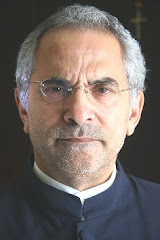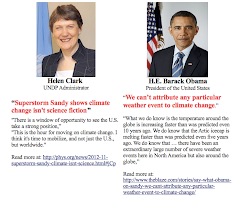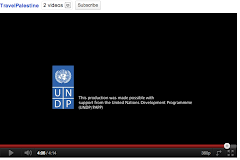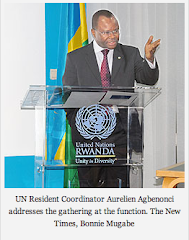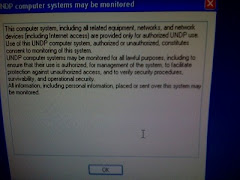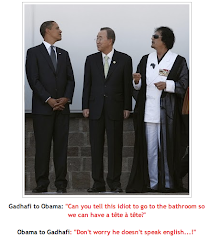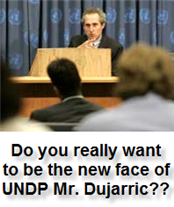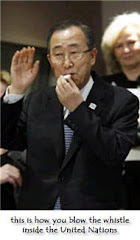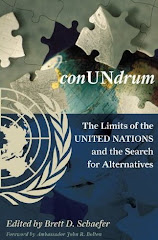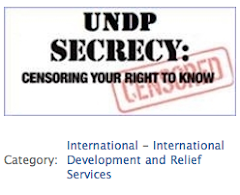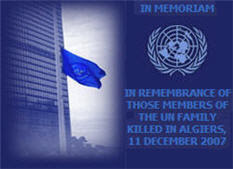
Wednesday, March 30, 2011
More transparency of aid flows and results will lead to better insights and collaboration.
CLICK HERE FOR MORE ON THIS EVENT
What: a 2-day conference on using open data in international development aid
For whom: developers, practicioners and policy makers
Hashtag: #ODDC
More transparency of aid flows and results will lead to better insights and collaboration.
But how can we make this work?
The Open Data for Development Camp brings together a diverse crowd of development aid workers, policy-makers, researchers, journalists, IT staff, software developers and service providers:
* A round-table for decision-makers: introducing key concepts, threats and opportunities, discussing conditions and policies to introduce open data in an organisation, and expected added value and return on investment.
* Clinics and workshops for practitioners: defining open data and data sets, presenting best practices and lessons learned, developing a joint open data policy and privacy framework for programmes and projects, and learning about data-driven journalism and communication.
* Hack days and code sprints for developers: dealing with repositories and registries, supporting standards and APIs, publishing and reusing data sets, linking open data, and developing tools, apps and mash-ups.
ODDC
The Open Data for Development Camp is an activity of Open for Change, a new platform hosted by Partos. Open for Change was founded to bring together innovative development initiatives and share information on developments, to support organisations in transitioning to effective use of open data. Open for Change also develops a central place for data on Dutch international aid, building on existing tools and platforms. The Open Data for Development Camp is organized by Open for Change under the responsibility of Partos and in cooperation with and financed by the Netherlands Ministry of Foreign Affairs. It is part of the shared ambition of Partos and the Ministry of Foreign Affairs to report about results of Dutch international development activities in a transparent way, on the basis of open data.
Tuesday, March 29, 2011
UN Libya Sanctions Chair Says No Arms to Rebels, US Says It Can as Obama to NY
By Matthew Russell Lee
UNITED NATIONS, March 28 -- On the Libya arms embargo, things get more and more strange. On Monday Chairman Cabral of the UN Libya Sanctions Committee stated on camera that there is a full embargo on arms to Libya, including to the rebels.
When he was told, as Inner City Press and other have been, that the UK is seeking a legal opinion, Cabral said this was just talk, and reiterated his reading of the resolution: a full arms embargo. This position has been echoed to Inner City Press by other Security Council members.
How then can not only Obama administration spokesman Jay Carney on March 25, but also Defense Secretary Robert Gates on March 27, say that the UN resolutions have the flexibility to allow for arms transfers to the rebels?
Skeptics at the UN say that if the George W. Bush administration was making such comments, there would howling about their contempt for international law and multi-lateralism. But now very little is being said. Would this silence continue if the US did in fact more to arm the rebels?
The US did not even raise the issue to debate it in the Sanctions Committee's first meeting on March 25, Inner City Press is reliably informed.

Susan Rice, Obama and Clinton, negotiation of Paragraph 4 and new position not shown
At the March 28 UN noon briefing, Inner City Press asked UN spokesman Martin Nesirky about two of the requests that were discussed in that meeting, by Belarus and Senegal:
Inner City Press: has Kuwait written a letter to the Council under resolution 1973 (2011)? And also, there are supposedly some notes verbale that went in and I wanted to know what… if you can confirm one from Belarus and Senegal, and describe what they concerned.
Spokesperson Nesirky: As you know, when we have had notifications that have gone through to the Council, then we have been advising you. I don’t have any update beyond the numbers that the Secretary-General used. And I know that the question was posed during the briefing on Friday; we don’t have any further update on notifications since then.
Inner City Press: And do you know, this thing on Ukraine, because you’ve been the one to announce Ukraine and then take it off, could we, just for the purposes of transparency, understand why it was on and then off?
Spokesperson Nesirky: Well, we did go through this a number of times, and I know it was raised again here on Friday. So, I don’t think we need to…
Inner City Press: But we didn’t really get to why did it go on and then come out.
Spokesperson Nesirky: Well, as I mentioned to you before, there are different kinds of notification under the terms of the resolution. Some are relating to military action and others not. And so I think it needs to be seen in that context, as well. And if there are further updates, then obviously we will make sure that the people have those.
Inner City Press: And just also on Libya, on the Envoy, Mr. [Abdul Ilah] Khatib, I wanted to know a couple of things. I have been told that there is an OLA [Office for Legal Affairs] ruling that he cannot receive funds from Jordan and as a full-time Envoy at the same time. I wanted you to either confirm or deny that. And also that he has requested to work out of Amman, and has requested the use of private planes only.
Spokesperson Nesirky: As I have said to you, and as Farhan [Haq] said to you on Friday, there are some details that are still being worked out with regard to the contract, as Farhan mentioned to you on Friday. I don’t have anything to add to that at the moment.
While the UN Secretariat, ostensibly coordinating the action in Libya, still has not answered, Inner City Press can now report that another note verbal was submitted by Malta. We have made inquiries with the Maltese Mission and will report more on this.
President Barack Obama is slated to dedicate the new US Mission to the UN building on Tuesday afternoon. Some are wondering if, for the photo op, USUN has invited anti-Gaddafi Libyan diplomats Ibrahim Dabbashi and Shalgam, who while no longer representing Libya at the UN have been given courtesy passes by the Ban Ki-moon administration of the UN. Watch this site.
Should the U.S. Arm Libya's Rebels?

CLICK HERE TO CAST YOUR VOTE @FOXNEWS
Susan Rice, the U.S. ambassador to the United Nations, says the Obama administration has not ruled out arming Libyan rebels seeking to overthrow Muammar al-Qaddafi. Should the U.S. arm the rebels?
Share your thoughts, answer our question then click "Leave a Comment."
London Conference on Libya
click here for more about this
The UK is hosting the London Conference on Libya today to discuss the latest situation and next steps with our allies and partners.
More than 40 Foreign Ministers and representatives from key regional organisations are expected to attend.
These include United Nations Secretary General Ban Ki Moon, the Chairman of the African Union Dr Jean Ping, OIC Secretary General Dr Ekmeleddin Ihsanoglu, the Prime Minister of Qatar, Foreign Ministers from key regional countries including Iraq, Jordan, UAE, and Morocco, Secretary Clinton, and Foreign Ministers from across Europe and NATO members, along with Secretary General Rasmussen.
The Arab League, Lebanon and Tunisia will also be represented.
The London Conference will be chaired by the Foreign Secretary William Hague and opened by Prime Minister David Cameron.
The London Conference aims to strengthen and broaden the international community’s commitment to implementing UNSCRs 1970 and 1973, ensuring that Libyan civilians are protected from violence.
The Conference will also reaffirm the importance of urgent humanitarian assistance to Libya, in particular to alleviate the suffering in Misrata and on Libya’s borders given the disruption of essential supplies such as water, food and medical provisions.
It will also call for a political process which helps create the conditions in which the people of Libya can chose their own future, supported by the international community.
Ahead of the Conference, Mr Cameron and President Sarkozy issued a joint letter setting out the aims of the Conference.
Read more: Libya: background
Wednesday, March 23, 2011
U.N. Secretary Ban Ki-moon is Scrambling to Release a New Cost-Saving Agenda, Ahead of Re-Elections
 click here to view this on FOX NEWS
click here to view this on FOX NEWS

AP
Sept. 23: President Obama gives a toast at a lunch hosted by United Nations Secretary-General Ban Ki-moon, right, during the 65th session of the U.N. General Assembly at U.N. headquarters.
By George Russell
Published March 23, 2011
U.N. Secretary General Ban Ki-moon is suddenly scrambling to roll out a new “agenda for change” at the U.N. this spring -- an agenda that also saves money -- before he must seek re-election as head of the world organization next fall.
The agenda seems aimed to blunt two major criticisms of his first, five-year term of office: that he has done little to improve the performance of the organization, and that he has not reined in its rapidly ballooning costs -- indeed, he has become the U.N.’s spender-in-chief.
Ban’s abrupt change of course may have gotten some prodding from President Obama, who met with Ban at the White House on Feb. 28. At the time, according to U.S. Ambassador to the U.N. Susan Rice, the two men “discussed their shared agenda to build on the strengths of theUnited Nations while pursuing and implementing very important management reforms as well as budgetary discipline.”
Ban unveiled the idea of his new agenda not long afterward, at an “extraordinary meeting” with his top lieutenants in the U.N. Secretariat on March 15, according to a follow-up letter dated the next day, which has been examined by Fox News.
In the letter, Ban’s deputy, Asha-Rose Migiro, encapsulated the previous day’s session by declaring that “we agreed on the urgent need to find ways to do more with less.” She then repeated Ban’s demand from the session that top managers “submit concrete proposals for modernizing our operations, identifying efficiency gains, and equipping our staff with state-of-the-art skills” by no later than March 28.
Those ideas will then be chewed over by top level U.N. policy and management committees at a joint meeting under Ban’s direction in late April. “The joint committee meeting will produce an agenda for change that we will all work together to implement,” Migiro said.
The focus will be on “delivering more, on becoming a stronger and more effective organization as well as ensuring long-term cost-containment.”
Drastic cost containment is very much in the cards for the U.N., especially after the huge environmental and nuclear catastrophe that has stricken Japan, the organization’s second-biggest donor (after the U.S.) in previous weeks. Japan’s disaster, which will require hundreds of billions of dollars in recovery costs, came atop Europe's fiscal meltdown, which has also strained the resources of major donor countries.
And then there is the U.S. itself, where the White House is on a collision course with the Republican-dominated House of Representatives over runaway spending -- and where generous, unconditional U.S. funding for the U.N. has come under sustained fire from House Foreign Affairs Committee Chairman Iliana Ros-Lehtinen.
As Fox News revealed last week, Ban has issued a call to the same subordinates for suggestions on how to achieve a “painful” 3 percent cut in the Secretariat’s regular budget for the next two years that would, essentially, leave spending exactly where it left off at the end of 2011.
Click here to read that story from Foxnews.com.
Ban’s new “reform and strengthening” plan tells top managers to focus on five areas: staffing, budgetary “cost containment over time,” improving business processes through high-tech means, “rationalizing structures” and “engaging member states on closer alignment between mandates and support provided for them.”
The last two points are possibly the most drastic, depending on the ideas offered. “Rationalizing structures” appears to be an oblique reference to bureaucratic streamlining, and few doubt that the U.N. could accommodate a lot of that. “Closer alignment” between U.N. mandates and money points to a longstanding fact of U.N. existence: that only a relative handful of countries, led by the U.S., provide the bulk of U.N. finances, while 192 members, most of them contributing a relative pittance, decide how the money should be spent.
Migiro’s letter on behalf of her boss calls for “bold and forward-looking” suggestions, and a “fresh injection of ideas,” and urges top managers to “draw on the creativity and ideas of your staff.” Ban’s much more charismatic predecessor, Kofi Annan, offered up sweeping and extensive reform proposals before the end of his second term, and the result is the organization Ban now runs.
When it comes to technological fixes, the U.N. track record is equally dismal. A high-tech “enterprise resource planning” system known as Umoja was supposed to be ready next year, but the project, originally budgeted for about $286 million, is tens of millions over budget. Umoja this summer was mired in a procurement scandal and is now not expected to be ready before the end of 2013.
Any “bold and forward-looking” ideas that Ban gets will also face a familiar policy grinder. As Migiro’s letter states, they will be compiled, then returned to their originators for comment. Then they will go to a joint meeting of Ban’s policy and management committees in late April, which will, she says, “produce an agenda for change that we will all work together to implement.”
In fact, Ban, who is notoriousness for his secretiveness and closed decision-making style, may also have an alternative process in mind.
Migiro’s letter closes with the observation that alongside the bulky but relatively open suggestion routine, “the Secretary General will form a small change management team composed of specific staff members who have relevant expertise” to “support this process.”
In other words, a small group of insiders may still run the show.
By whatever process he chooses to give birth to it, however, Ban’s instant “agenda for change” will still face the same question: after years of unimpressive, expensive results from the same management, how will it avoid being more of the same?
George Russell is executive editor of Fox News




